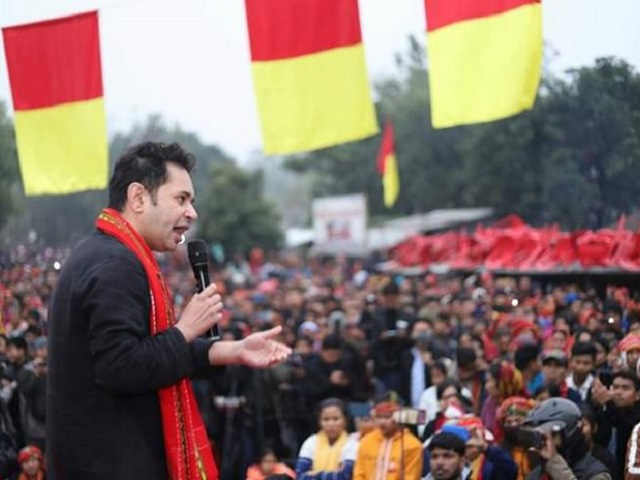In Tripura, Pradyot Kishore Manikya Debbarma, the leader of the Tipraha Indigenous Progressive Regional Alliance (TIPRA), emphasized the crucial demands for the protection of land and language. Speaking to reporters, Pradyot highlighted the significance of safeguarding the indigenous communities’ rights over their land and preserving their native languages.
Pradyot stressed that ensuring the protection of land rights is paramount for the indigenous people of Tripura. He emphasized the need for concrete measures to prevent encroachment on tribal lands and to address issues related to land ownership and acquisition. Additionally, Pradyot underscored the importance of promoting and preserving indigenous languages, which play a vital role in maintaining the cultural identity and heritage of the tribal communities in Tripura.
The TIPRA leader’s statements come in the wake of growing concerns among indigenous groups regarding land encroachment and the gradual erosion of their cultural identity. Pradyot reiterated the commitment of TIPRA to address these pressing issues and work towards safeguarding the interests of the indigenous population in Tripura.
The demand for the protection of land and language rights has been a longstanding issue in Tripura, with indigenous communities advocating for greater autonomy and recognition of their cultural heritage. Pradyot’s remarks reflect the ongoing efforts to address these concerns and advocate for the rights of indigenous peoples in the state.
All About TIPRA
As the leader of TIPRA, Pradyot has been actively involved in advocating for the rights of indigenous communities and raising awareness about their plight. His statements serve to highlight the importance of addressing issues related to land rights and language preservation to ensure the well-being and empowerment of indigenous populations in Tripura.
Pradyot’s emphasis on the protection of land and language rights underscores the need for concerted efforts to address the concerns of indigenous communities in Tripura. By prioritizing these key demands, stakeholders can work towards creating a more inclusive and equitable society that respects the rights and dignity of all its citizens.




